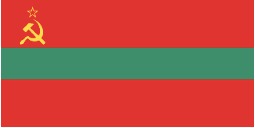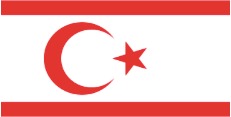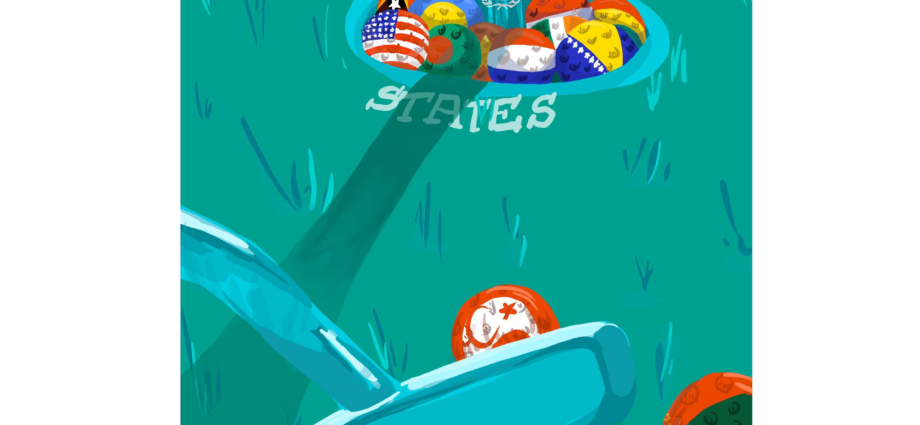By Joanna Sowińska
While most people would suggest that states are the simplest entity to describe how the world functions, the use of the word state can be sometimes confusing because of its debated meaning. Today, the United Nations system counts 193 sovereign member states, from which 187 have no disputed sovereignty by any other state. In fact, the remaining 6 states, namely Armenia, China, Cyprus, Israel, South Korea, and North Korea are not recognised by at least one member state, but are, however,
still considered as United Nations members. In order to be formally recognised as a sovereign state, a political entity needs to meet 4 decisive criteria. Accordingly, it needs to possess a defined territory, a permanent population, a government, and the capacity to enter into relations with other sovereign states.
There are states, (or maybe territories) no one really hears about and that cannot be found on maps. Among those, two categories can be outlined: quasi-states and de facto states. Quasi-states can be defined as existing and internationally recognized states, nevertheless lacking an effective control of the government over their territory. An example of such a case is Somaliland. On the other hand, de facto states are further interesting to study as political actors since they are not recognized under international law despite the formal presence of a government and the ability to control their territory. This article focuses on 3 of them: Abkhazia, Transnistria and
Northern Cyprus.
But why are de facto states so contested if they somewhat function, have their own flags, anthems, national symbols, and even currency, like in the Transnistrian case? What about the people who live in de facto states? Shouldn’t they have the right to self-determination? Also, one can ask why the international arena refuses to recognize those political entities that have their own police forces, education, and even healthcare systems?
A first answer to these questions lies in de facto states’ historical context. As a matter of fact, a majority of them originated from minorities present in states created after the collapse of vast former territories such as the Soviet Union. Transnistria is for instance a Moldavian region in which Russian ethnic minorities with close ties to the former Soviet Union always prevailed. Similarly, Abkhazia also has shared history with the Soviet Union, however, its people do not remember the Soviet Union as something positive. This is because Stalin wanted the ultimate merge of the pre-existing Abkhazia into Georgia, which created a civil war within Georgia. Today Abkhazia is only recognized by 5 states, Russia being one of them. Northern Cyprus was born out of the Turkish-Greek cultural division of Cyprus after its invasion by Turkey in 1974. Most states assume that de facto states were born in conflictual areas and are prone to conflict.
Moreover, another characteristic of de facto states which has a negative impact on their international recognition is their heavily polarized politics. Because de facto states fall short in their foreign relations and international status, they heavily rely on a patron state which provides them financially as well as military. This special relationship provides the patron an extensive control over the domestic affairs of the de facto state, and therefore, a great source of power. While Northern Cyprus’ patron is Turkey, Transnistria and Abkhazia are both supported by Russia. In this setting, polarized politics means that de facto states are somewhat biased towards a patron state with whom they keep close friendly ties, and a parent state, which is generally the state perceived as the enemy and the territory on which they lie. The main reason states refuse to recognise de facto states is that they are too heavily financially and militarily dependent on the patron state, and thus, not independent. According to surveys conducted in Eastern Europe, in the implausible event of Russia’s patronage breakdown, it is rather unlikely that Georgia would claim Abkhazia. The same applies to Abkhasian people who would not be willing to be part of Georgia, as they do not self-identify as Georgian. This example shows that de facto states’ lack of independence can become really problematic. Similar conclusions can be drawn for Transnistria and Northern Cyprus.
Lastly, de facto states are criticised for their high criminality rates. While Northern Cyprus is particularly known for human and sex trafficking, Transnistria and Abkhazia’s smuggling rates are exploding. Therefore, another reason why de facto states struggle to be internationally recognised is that they are not able to adequately regulate criminal activities in their territories. This is because unrecognised territories are good places to refuge from international justice.
An interesting perspective from which de facto states can be analyzed concerns the “lives in quotation marks” and the implications they have on them. In fact, while many activities such as making bank transfers, travelling or studying appear as effortless for people with internationally recognized passports, it is not the case of those solely having de facto states’ ones. Living in a de facto state can quickly become problematic whenever a person has to choose their country from a drop-down box on a university website for instance. Because of fast international developments and global integrative efforts, the isolation of de facto state from globalisation hinders their own economic and social development. Moreover, although they provide public education and healthcare, they are still unfortunately not comparable to those provided by their neighbors. As a result, the lack of tertiary education significantly alters the ability of de facto states to engage in international relations.
But is there a future possibility of recognition for de facto states? Once again, the situation appears as unresolvable. No matter how hard de facto states fight for international legitimacy, their parent state plays a decisive role in their recognition process by rejecting the secessionist movement occurring on their territory. In 2016, a Moldavan non-governmental activist published a letter in which they openly objected to the Transnistrian secessionist movement. Paradoxically, the letter also includes a paragraph stating that no Moldavian document should be issued to Transnistrian people. On a more positive note, de facto states recently aspire to integrate into the rest of the world. For instance, none of the de facto states employs the death penalty, a former widespread practise. Northern Cyprus even started engaging in new activities such as tourism and university opportunities for foreign students.
Flag of Abkhazia

Flag of Transnistria

Flag of Northern Cyprus

Edited by Zuzanna Mietlińska
Artwork by Mira Kurtovic

